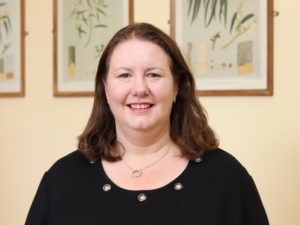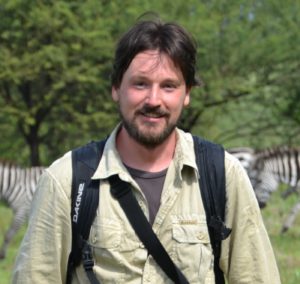Environment Institute members shine with multiple ARC Discovery Projects funded for 2021
This project aims to understand the complex trade in live Australian reptiles. The global pet trade is a major threat to biodiversity. This project expects to generate critical new knowledge for combatting the current and future illegal trade in Australian wildlife. Using surveillance of domestic and overseas online markets, and innovative statistical and simulation-based approaches to inform conservation decision-making, the expected outcomes of this project include an enhanced capacity to conserve native species and to monitor and disrupt the complex illegal wildlife trade. This should provide significant benefits in terms of biodiversity conservation and safeguarding Australia’s unique and ecologically important native reptile species.
DP210103050 13/11/2020 The University of Adelaide 0502 $420,851.00
Hydrosocial Adapatations to Water Risk in Australian Agriculture.
[caption id="attachment_15270" align="alignnone" width="238"]
 Dr Georgina Drew [/caption]
Dr Georgina Drew [/caption][caption id="attachment_15271" align="alignnone" width="300"]
 Dr Douglas Bardsley[/caption]
Dr Douglas Bardsley[/caption]Dr Georgina Drew; Associate Professor Douglas Bardsley
This project aims to understand how Australian farmers adapt to water resource limitations and governance constraints. We will address this significant challenge by identifying how social and cultural perceptions of water risk inspire farmers to create resilient management solutions in line with policy guidelines. Through ethnographic fieldwork and the analysis of historical patterns of water use, the research seeks identify the hydrosocial adaptations that enable farmers to effectively respond to change. The new knowledge will foster water risk management via the culturally appropriate tailoring of interventions. Outcomes will support the long-term viability of Australian agriculture, with relevant lessons for managing drought globally.
DP210101849 13/11/2020 The University of Adelaide 1601 $217,656.00
Collective Engagement towards Social Purpose.
[caption id="attachment_15272" align="alignnone" width="300"]
 Professor Jodie Conduit[/caption]
Professor Jodie Conduit[/caption]Professor Jodie Conduit; Professor Carolin Plewa; Professor Ingo Karpen; Professor Elina Jaakkola; Professor Dr Michael Kleinaltenkamp
This project aims to develop knowledge on how to engender collective engagement for a social purpose, such that the collective actions of the group facilitate well-being of the broader community. The project expects to generate new knowledge of how to drive the emergence of engagement from an individual to a collective level, and understand the benefits that can be gained by focusing this engagement on social purpose. Expected outcomes include measurement tools, an intervention framework for facilitating collective engagement, and mechanisms for leveraging this engagement for community well-being. This should provide significant benefits within organisations, by enhancing their social impact and facilitating economic growth and job creation
DP210100858 13/11/2020 The University of Adelaide 1505 $295,000.00
Fire and rain: Drivers of deep-time ecosystem assembly in Australia.
[caption id="attachment_15273" align="alignnone" width="300"]
 Francesca McInerney[/caption]
Francesca McInerney[/caption]Dr Francesca McInerney; Professor Gavin Prideaux; Dr Kale Sniderman; Professor Katherine Freeman; Professor Caroline Stromberg; Dr Caroline Lehmann; Associate Professor Pratigya Polissar
This project aims to investigate the influence of bushfires and shifting rainfall patterns on the development of Australia’s dominant ecosystems. By combining a range of novel geochemical, isotopic and palaeontological techniques, this research seeks to reveal the causes and consequences of Australia’s transformation from a forested to mainly open landscape of grassland, shrubland and savannah. The expected outcome is detailed knowledge of how changes in fire and rain shaped the ecology and evolution of plants and animals. This knowledge is key to understanding how Australian ecosystems function and to protecting their cultural, economic and environmental values, especially as climate and fire regimes continue to change into the future.
DP210100508 13/11/2020 The University of Adelaide 0402 $476,000.00
Glauconite: Archive Recording Timing and Triggers of Cambrian Radiation
[caption id="attachment_15274" align="alignnone" width="300"]
 Dr Juraj Farkas[/caption]
Dr Juraj Farkas[/caption][caption id="attachment_15275" align="alignnone" width="180"]
 Professor Alan Collins
Professor Alan Collins[/caption]
Dr Juraj Farkas; Professor Glenn Brock; Professor Graham Shields; Dr Stefan Löhr; Professor Alan Collins; Dr Andre Baldermann; Dr Thomas Zack
This project aims to constrain the timing and speed of the Cambrian radiation of complex animals, and to test potential environmental triggers of this milestone bioevent. New laser mass spectrometry and mineral mapping technology will be integrated to precisely date glauconite – a silicate mineral commonly formed in Cambrian shallow marine animal habitats. This innovative and cost-effective approach will produce the first high-resolution timeline of early animal evolution, where the glauconite-based marine isotope record identifies the most likely environmental trigger for the Cambrian Radiation. Outcomes of this study include improved understanding of the drivers of animal evolution, and a new dating tool for basic and applied research.
DP210100462 13/11/2020 The University of Adelaide 0403 $390,000.00

Newsletter & social media
Join us for a sensational mix of news, events and research at the Environment Institute. Find out about new initiatives and share with your friends what's happening.


